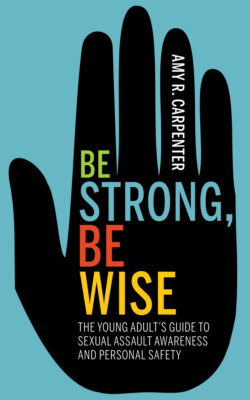Читать книгу Be Strong, Be Wise - Amy R. Carpenter - Страница 11
На сайте Литреса книга снята с продажи.
The Movement That Changed the World
ОглавлениеOn October 15, 2017, at approximately nine p.m., actress Alyssa Milano was snuggling in bed with her daughter Bella when she was overcome by what she later described as a “mommy moment.” She found herself praying to God that her daughter would never have to endure the sexually traumatic experiences she went through when she was younger. Without thinking much about it, Milano sent out a short message from her phone, asking that if anyone had ever experienced assault or harassment, they tweet back “#MeToo.” Within seven hours, she received 35,000 responses. Within twenty-four hours, the number leapt to twelve million, and forty-eight hours later, the tweet had reached eighty-two countries.
A global movement was born.
The concerns around sexual violence in the US had been building for years prior to Milano’s tweet as more executives and people in power were named as offenders. The phrase “Me Too” had been around for a while as well. Tarana Burke, activist and founder of “Just Be Inc.,” an organization serving sexual assault survivors, first used the term in 2006 in order to promote “empowerment through empathy” among women of color who were assault survivors. Burke originally identified the term when she witnessed a thirteen-year-old abuse survivor describe her experience. “I didn’t have a response or a way to help her in that moment, and I couldn’t even say ‘me too,’” Burke later told the New York Times.
There’s a reason why it took a movement for the world to sit up and notice how big the problem is. In fact, in her interview with the New York Times, Tarana Burke described sexual assault as an “epidemic” in the United States.
As we’ll discuss in this book, victim-blaming can happen in a myriad of ways and can have massive implications on reporting outcomes. If someone has been assaulted and is then brave enough to share their story, you can bet they might regret coming forward if they are then ridiculed or ostracized by their peers. As traumatic as victim-blaming is, #MeToo widened the doorway for people to share their experience in a way that allows them to feel supported, rather than rejected. Now we can talk more openly about the problem and how to address it in a way that makes a difference.
